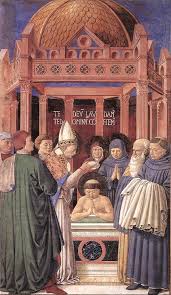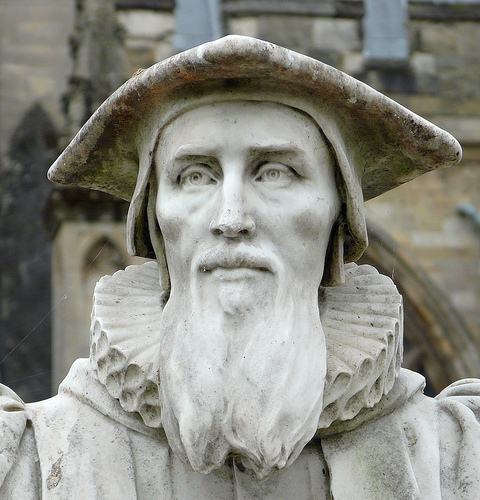
In a previous blog post, I discussed John Webster’s understanding of the Theologian as both contemplative and apostolic. At the end of that post, I referenced St. Augustine of Hippo as an excellent example of this way of being a theologian. In this post, I’m presenting Augustine’s struggle with the tension between Contemplation and apostolic work, and the way he lived in the tension.
By way of reminder This is how John Webster defines the task of theology as Contemplative and apostolic:
…theology is both contemplative and apostolic. Contemplative first, because whatever it may offer to the church derives from sustained and disciplined and unselfish attention to divine revelation in its limitless depths and scope; everything depends upon contemplative absorption in God and the gospel of peace. Apostolic second and by derivation, because the rule of charity in the church requires that gifts by communicated, not hoarded, such that theology is part of the flow of love…
How does Augustine exemplify this as a pastor-theologian? First, we must acknowledge that Augustine’s Journey into Christianity was one where he sought to be united with God and contemplate him in an intensely intimate and personal way.
In Confessions, Augustine narrates his conversion experience in light of two moments of contemplation. First, when he was a practicing platonist, he attempted to ascend to God by contemplating created reality to gain access to the divine, but God beat him back (Book VII.16). It was not until he took up and read Scripture, giving his life to God in Christ, meeting the mediator between God and man that he was able to contemplate the true God of the universe in Jesus Christ (see Book XI.24-25). This was only the beginning of Augustine’s contemplation of God. Most of his writing is a rigorous and Holy Spirit infused apprehension of the Triune God, as he consistently sought to find rest in God (Book 1.1). Perhaps this famous quote can adequately express God’s deep passion for Augustine that led him to desire to spend all his time with God, contemplating him and his works:
Late have I loved you, Beauty so ancient and so new,/late have i loved you!/ Lo, you were within,/but I outside, seeking there for you,/ and upon the shapely things you have made i rushed headlong,/I misshapen./ You were within me, but I was not with you./Tehy held me back far from you,/ those things which would have no being/ were they not in you. You called, shouted, broke through my deafness;/ you flared, blazed banished my blindness;/ you lavished your fragrance, i gasped, and now I pant for you;/ I tasted you, and I hunger and thirst;/ you touched me, and I burn for your peace. (Book X.38).
Augustine’s call to serve in the church prevented him from joining a monastic community, which would have allowed him to continue in contemplation and prayer. This call forced him to deal with and harmonize two proper Christian desires; a single-mindedness towards God and love of neighbors (“Contemplation and Action,” Augustine through the Ages, 233). N. Joseph Torchia, O.P., in his article “Contemplation and Action” notes how apostolic service aids contemplation. Far from viewing contemplation and apostolic action as mutually exclusive:
He stressed their relationship and interaction. In this regard, he considered action the necessary means to contemplation, both now and in the life to come. As he affirms we find Christ on earth in the poor in our midst, and likewise, we secure a place in heaven by performing charitable works on their behalf. Service to those in need, then, is nothing less than a means to the contemplation of the love of God. (“Contemplation and Action,” 233).
Even so, Augustine struggled with the desire to spend time in God’s presence as he ministered to the Church as the bishop pastor, social mediator, theologian, and teacher. In the end, Augustine concluded:
Although contemplation is superior to action, we must accept an apostolate when the church requires our talents; yet even in the midst of active endeavors, we should continue to take delight in contemplation (Contemplation and Action, 233).
This idea that contemplation is superior is grounded in the fact that it is what we were created for, to behold the face of God. However, we must accept the vocations that we are given, for Augustine it was to be a Bishop out of love for others, while simultaneously remaining in a consistent pattern of practicing the presence of God and seeking his face.
For Augustine, the Christian’s model for this way of life, and the source of strength to live as a contemplative in action is Jesus Christ. Jesus Christ who is the eternal word of God the Father, the exact imprint and likeness of the Father, came from the infinite plentitude of the divine life, to save humanity from sin and death, and reveal God to them. Because The Son became human and was the mediator between God and man, humanity can now contemplate God because God has saved humanity from sin (see Confessions, Book X.67-68, and The Trinity, Book XIII). Taking up the apostolic task, for Augustine and any theologian, is not a distraction from contemplation, but an imitation and participation in the eternal love of God for the world exemplified in Jesus Christ. As we contemplate God in our studies and work, we are called out to share our labor with the church and the world. This is precisely what Webster was getting at when he said that the Apostolic is derivative of the contemplative and is motivated by charity.
Augustine poured out his life for the church, and this was empowered by first the rigorous contemplation of the Triune God and second by participating in the life of Jesus Christ through the Holy Spirit. This is the pattern of service in the church, this is the pattern for Pastor-Theologians.
While Augustine’s way of life is a good example for Pastor-Theologians, I want to conclude by saying that this pattern of contemplation-grounding-action is the pattern for all Christians in all vocations. We must wholeheartedly seek the triune God, actively live in his presence and do all that we do out of the love that God has for us and the love that God has for others. We do this because God first sought us in Jesus Christ and has filled every Christian with the Holy Spirit. While not all of us are called to be Theologians for the Church, every Christian is called to contemplate God in Scripture, worship, and prayer, and share the love of God that is poured into our hearts by the Spirit in our families, lives, and work.
